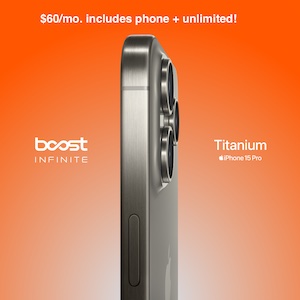2012 To Bring New World Record In PC shipments – Apple Retakes Lead (Counting iPad As A PC)
Canalys reports that global client PC shipments rose 12% year on year in Q2 2012. Growth in pads more than compensated for disappointing sales of Ultrabooks, with the new iPad having the biggest single impact on growth rates in the quarter, but Asus and Samsung made progress with their Transformer and Galaxy Tab product lines as well. Total pad shipments increased 75% to 24 million units, representing 22% of all PCs.
“Reports that poor economic conditions and the wait for Windows 8 hurt the PC industry this quarter do not tell the whole story,” says Tom Evans, Canalys Research Analyst. The PC industry is performing well and 2012 is shaping up to be a record year. Vendors with innovative products will reap the rewards.”
Apple retook the overall lead with an estimated 19% share of global PC shipments, helped by strong iPad sales. “There is now a large base of replacement buyers that simply must have the latest Apple product, and the decision to continue shipping the iPad 2 at lower price points has opened up new customers, for example in education,” Evans added. “One drawback of the stand-out retina display in the new iPad, however, is the increased storage demanded by HD content. An upgrade, without a big price increase, is a must for the next generation of product.”

Samsung was the leading Android pad vendor in Q2, more than doubling its Galaxy Tab shipments compared to a year ago. It remains Apple’s chief challenger in pads, but Asus made the biggest gains this quarter, particularly in the US, following the launch of the TF300 at a sub-$400 price point, and is now the third largest pad vendor globally.
Canalys Research Analyst Pin Chen Tang says: “Joining forces with Google to produce the sub-$200 Google Nexus 7 will further strengthen the role of Asus in this market. Amazon must now launch a more powerful replacement for the Kindle Fire, and expand internationally, or see its pad business fail. Canalys estimates that shipments of the Kindle Fire were below 500,000 in Q2, down significantly compared to previous quarters.”
In contrast to pads, Windows PC shipments continued to disappoint. Ultrabooks have not hit the price points that could excite large numbers of buyers and the share of the overall market taken by Windows fell to a new low of 73%. Intel’s share also hit an all-time low, falling below 70%. But against this dark background there were some bright points. Lenovo continued to gain share, thanks to a strong home market, a focus on emerging markets and increased attention to the consumer category overall. Acer improved too, compared to a terrible Q2 a year ago. While results in its former strongholds of Italy and Spain remained poor, it made good progress in the more buoyant markets of Russia, Germany and the UK. Furthermore, improved brand awareness through its Olympics sponsorship should translate into increased sales in the second half of the year.
HP was the second largest PC vendor in Q2 with 12% share. The sensible cost-saving decision to merge its PC and printing divisions impacted its first half, but a Canalys survey of channel partners revealed that a large majority think this will have a positive (or neutral) effect on their future business. After spending time focusing on internal issues, and with the new PPS organization largely in place, a period of stability will enable HP to rebuild momentum.

Perhaps the biggest talking point of the quarter was Microsoft’s decision to launch its own pads – the Surface and Surface Pro. The information available to date suggests the prices of both will be too high to capture significant market share, and a direct sales approach will prove inadequate. “We expect the Surface pads to have a similar impact on the PC industry as the Zune did in portable music players,” commented Canalys Analyst Tim Coulling. [A cruel, but possibly prescient assessment – Ed.)
Canalys has advised PC vendors (Microsofts OEMs) to postpone launches of Windows RT pads until Microsoft rethinks the high license fee. Chris Jones, Canalys VP and Principal Analyst, notes that “Microsoft has upset some partners by bringing its own hardware to market. Marketing, distributing and servicing such hardware profitably is hard. Once the Surface makes a material dent in Microsofts P&L, it will need to repair relationships with PC vendors, who are already preparing lists of demands.”
The Windows 8 launch budget guarantees attention during Q4, but users will only benefit fully from the new OS if they buy PCs with touch screens, which will significantly increase the purchase price. Canalys does not expect the launch of Windows 8 to arrest Microsoft’s market share decline until Q3 2013 at the earliest. Canalys recommends that Microsoft helps its OEMs hit mainstream price points for Windows 8 touch-screen products, for example by subsidizing touch panel production costs by $50 to $100 per unit, to kick-start the market. Intel pledged to invest $300m in Ultrabook ecosystem players, but there is no indication, as yet, that Microsoft is prepared to make a comparable commitment to the PC supply chain.
Note: Canalys defines a client PC as a computing device designed to be operated by an individual and positioned to serve a broad range of purposes, achieved by running third-party applications, some of which can work independently of a network connection. When designed to be portable, it must be able to function without mains power and have a built-in display of at least 7 inches in diagonal.
The forthcoming Canalys Channels Forums in EMEA and APAC will be the largest and most prestigious independent channel partner events ever seen in both regions. For more information, visit:
http://www.canalyschannelsforum.com
Via: http://bit.ly/QiJs1t
